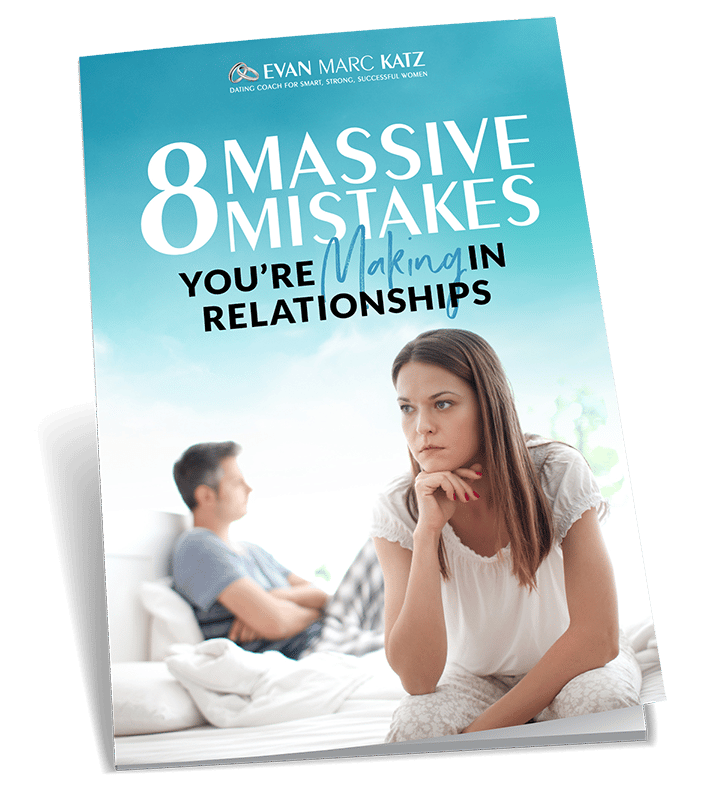My Boyfriend Is A Jewish Atheist And Wants His Children Raised Jewish. Should I Convert?

- How Much Do I Have to Compromise to Be with Him?, Relationships
I’ve been with my boyfriend for nearly two years. He was raised Modern Orthodox Jewish, but is a secular atheist like yourself. My father was raised Jewish and my mother was raised Christian. Neither is religious, and I was raised secularly but celebrating Christmas (and occasionally latkes on Rosh Hashanah, etc.). They’ve been happily married for 25 years. I’ve been to church maybe once in my life, and synagogue twice. I don’t like organized religion, but do consider myself spiritual.
We’re both in our early 20s and very committed to each other, though neither of us wants to get married until we’re more financially secure. There is nothing that would make us break up except for possibly the question of religion, and I’m determined not to let that happen.
I really love this guy. I don’t particularly care one way or the other about what religion we raise any potential children, as long as we teach them to think for themselves and be intelligent, ethical people. And we celebrate Christmas (not in a religious way, just in a Santa Claus way–it used to be a Pagan holiday after all). That’s it.
He wants to raise Jewish children because it’s important to him to pass on the traditions he was raised with. He doesn’t keep kosher, pray, keep Shabbat, go to shul, or wear a kippah. I have seen more Woody Allen movies than him and probably speak more Yiddish.
But I know a thing or two about Jewish law and I know that any children of mine would not be considered Jewish unless I were to convert. This is a major source of tension within his family, and I’ve actually overheard his mother say things to him about how I can’t be a “serious girlfriend” because I’m not Jewish.
My question is: since I don’t really care one way or the other, should I think about converting to Judaism for him in the long run, even though he isn’t religious himself?
I’ve read online that converting requires living in accordance with strict Jewish standards to satisfy both the Rabbi and the Bet Din, and it seems that those standards wouldn’t be things he is comfortable with in his own Jewish practice. On the other hand, I like his family and don’t want to cause undue tension there, my dad thinks it would be hilarious if I were to become Jewish, my mom has said she doesn’t care, and I know the idea of Jewish children is important to my boyfriend.
Does it make sense to look into this process and consider conversion even though he isn’t himself religious? Is that dishonest? It seems rather unfair of him to not be a practicing Jew himself but to want to have his children be Jewish but also to not want to go with me to things like Shabbat dinner. I’m just not sure how I’m supposed to navigate this. Help?!
Sincerely,
Confused Semi-Shiksa
You sure came to the right place.
Before I get started in sharing my very personal feelings about this topic, I want to frame this post by saying that if you disagree with anything I’m saying, that’s absolutely okay. Just spare me the shouting. Every couple has to create its own compromises and I’m outlining one that worked for me in a similar situation.
First, a little education for my many non-Jewish readers:
There are 800 million Protestants in the world
There are 1.2 billion Catholics in the world
There are 1.6 billion Muslims in the world
There are 13.9 million Jews in the world (0.2% of the population)
In the United States, which has the second biggest Jewish population outside of Israel, the percentage of Jews is only 2%.
So when people ask “What’s the big deal about being Jewish?” there’s your answer. Jews have been persecuted for millennia, they do not proselytize, and outside Orthodox families, they rarely have a lot of children. As a result, there is a danger that the religion might disappear from the planet — which is why secular Jews are pretty sensitive when people ask them why they care about being Jewish.
Next, Jews, on the whole, have a different relationship with their religion than most other religions. On the whole, Jews question their religion but value the culture and history of their people.
1. 22% of Jews by birth don’t consider themselves having any religion.
2. For most assimilated Jews in America, being Jewish is far more about culture than religion. 62% of U.S. Jews feel that way, vs. only 15% who feel that it’s mainly a matter of religion.
3. The intermarriage rate between Jews and non-Jews is up to 58%, from 17% in 1970.
In short:
There are a lot of agnostic/atheist/cultural Jews. 75% of them marry outside the religion, thus making the already dwindling numbers dwindle even further.
His family has no vote. “Jewish law” has no vote. The only vote that matters is what makes you happy as a couple.
My own anecdotal evidence reveals something similar. I have four older male cousins; all of them married Catholic women. My four best friends from college are Jewish; they all married gentiles as well.
For each of us, being Jewish is a cultural thing — far more akin to being black or Greek or Italian, than to being, say, Presbyterian. The same way African-Americans can nod and assume they “get” each other based on a similar upbringing, so can Jews. This identity — formed by years of persecution, education, values, rituals and shared sense of humor — is extremely powerful, and needs to be intellectually separated from the religion itself.
My wife — who spent 12 years in Catholic school — didn’t understand that when she met me. And she was surprised, when, after six months, I let her know that if we were going to continue the relationship, I wanted to raise the kids Jewish.
It could have been a breaking point. Instead, it was an easy compromise.
-
- – My wife agreed to raise the kids Jewish.
– I agreed to allow her to teach the kids a concept of God — even though I don’t believe in it myself.
– I didn’t ask my wife to convert, because who am I to tell her what she should believe in private?
That was our solution, and it’s worked out extremely well for us.
Our kids go to preschool at a conservative temple across the street, where my wife has been embraced by the community. She is actively involved in social planning and takes great pride in witnessing our kids getting a sense of the Jewish culture.
I sometimes bristle when my kids mention God or say a prayer before a meal, but I always realize that my wife made a much bigger sacrifice than I did.
The only one who seems to have a problem with this is my mother-in-law — and if you’re reading this, Nana, I’m sorry. She is a true Catholic believer and was extremely upset that the kids were not going to be Catholic as well. I can understand and empathize with her feelings.
However, the moral of the story for me — and for you, Confused — is that whatever compromise you make has to work for you and your husband.
His family has no vote.
“Jewish law” has no vote.
The only vote that matters is what makes you happy as a couple. Which is why — if my Mom had a problem with me marrying Catholic, I’d tell her to deal with it. And why, if the conservative temple made an issue out of our kids not being Jewish by birth, I’d find another synagogue to attend. And why, despite my mother-in-law’s sincere and heartfelt protests, our kids are 100% Jewish.
Therefore, your boyfriend has to take a strong stand against his mother and tell her to get on board the Shiksa-train before it leaves the station.
My wife and I made sense of our own internal contradictions, and if that means that my kids celebrate Shabbat on Fridays while I’m busy on my computer, and my wife attends temple more than I do, so be it.
Same goes for your secular husband who wants Jewish kids.
I know I used this space to hijack your question and tell a very personal story that I’ve wanted to tell for awhile, but really, it doesn’t matter what I say.
This is between you and your future husband.
Sounds like you’re both on board with Jewish children.
Sounds like his Mom is not on board with a Gentile wife.
Sounds like you’re on the fence about the conversion.
Therefore, your boyfriend has to take a strong stand against his mother and tell her to get on board the Shiksa-train before it leaves the station.
And you have to figure out if you want to go through the grueling conversion process just for appearances.
You may determine that the path of least resistance is to convert because it would make your in-laws happy and answer any questions about your children’s religion.
But personally, I don’t think you have to “prove” yourself to anybody. Whatever works for you as a couple is what the rest of the world will have to deal with.










Comments